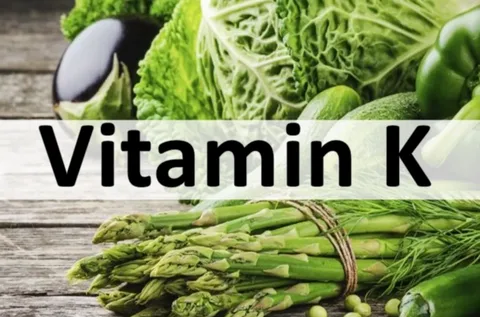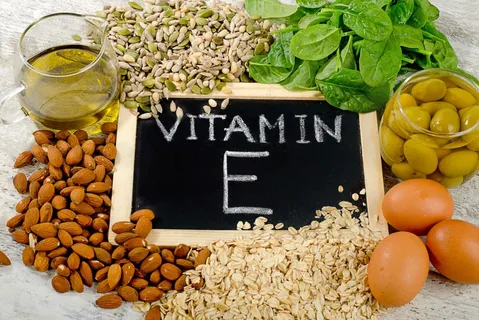Vitamin K plays a crucial role in maintaining healthy blood clotting and bone health. With various forms of Vitamin K available, choosing the right supplement can be complex. This guide will delve into the best Vitamin K supplements for promoting healthy blood clotting, covering the science behind Vitamin K, the types of supplements available, and practical tips for making the best choice.
Understanding Vitamin K
Vitamin K is a fat-soluble vitamin essential for synthesizing proteins that regulate blood clotting and bone metabolism. It comes in two main forms: Vitamin K1 and Vitamin K2.
Vitamin K1 (Phylloquinone)
Vitamin K1 is primarily found in green leafy vegetables like kale, spinach, and broccoli. It plays a significant role in the blood clotting process by aiding in the production of clotting factors in the liver. It’s also involved in bone health, though its primary role is related to clotting.
Vitamin K2 (Menaquinone)
Vitamin K2 is found in fermented foods and animal products. It exists in several subtypes, the most studied being MK-4 and MK-7. Vitamin K2 is crucial for directing calcium to the bones and teeth and preventing its deposition in arteries and other soft tissues. This form of Vitamin K is often recommended for bone and cardiovascular health.
Types of Vitamin K Supplements
Vitamin K supplements come in various forms, each with different benefits and uses. Understanding these can help you select the best option for your needs.
Vitamin K1 Supplements
- Standard Vitamin K1 Tablets: Typically contain phylloquinone extracted from green plants. These supplements are effective for those needing to boost their Vitamin K1 levels, especially if their diet lacks leafy greens.
- Liquid Vitamin K1: An alternative for those who prefer liquid supplements or have difficulty swallowing pills. Liquid forms can be easier to absorb and adjust dosage.
Vitamin K2 Supplements
- MK-4 (Menatetrenone): Often used for its role in bone health. Supplements with MK-4 are usually derived from animal sources. They may be suitable for people needing specific bone support.
- MK-7 (Menaquinone-7): Generally sourced from fermented foods like natto. MK-7 has a longer half-life in the body compared to MK-4, which means it stays active for a longer period. This form is beneficial for long-term cardiovascular and bone health.
Benefits of Vitamin K for Blood Clotting
Vitamin K is integral to the blood clotting process, which helps prevent excessive bleeding and supports wound healing. It works by facilitating the synthesis of clotting factors, which are proteins in the blood necessary for clot formation.
Clotting Factor Production
The liver uses Vitamin K to produce clotting factors such as Factor II (prothrombin), Factor VII, Factor IX, and Factor X. Without adequate Vitamin K, the body cannot produce these proteins effectively, leading to impaired blood clotting and increased bleeding risk.
Bone Health and Cardiovascular Support
Beyond clotting, Vitamin K2 specifically supports bone health by helping regulate calcium distribution. It activates osteocalcin, a protein that helps bind calcium to the bone matrix. For cardiovascular health, Vitamin K2 helps prevent the calcification of arteries, reducing the risk of heart disease.
Choosing the Right Supplement
When selecting a Vitamin K supplement, consider factors such as your health goals, dietary intake, and any existing health conditions. Here are some tips for choosing the best Vitamin K supplement:
Assess Your Diet
Evaluate your diet to determine which form of Vitamin K you may need more. If you consume plenty of green leafy vegetables, you might need less Vitamin K1 supplementation. Conversely, if your diet lacks fermented foods, a Vitamin K2 supplement might be beneficial.
Consider the Form
Decide between tablets, capsules, or liquid forms based on your preference and convenience. Liquid forms can be particularly useful for individuals with digestive issues or those who prefer a flexible dosage.
Quality and Purity
Choose high-quality supplements from reputable brands. Look for third-party testing to ensure the product’s purity and potency. Avoid products with unnecessary fillers or additives.
Consult a Healthcare Provider
Before starting any supplement regimen, consult with a healthcare provider, especially if you have underlying health conditions or are taking medications that affect blood clotting, such as blood thinners.
Top Vitamin K Supplements for Healthy Blood Clotting
Based on current research and consumer reviews, here are some of the top Vitamin K supplements:
1. K2 Mk-7 by Sports Research
- Type: MK-7
- Form: Softgel
- Features: Non-GMO, vegan-friendly, and contains added coconut oil for better absorption.
2. Jarrow Formulas MK-7
- Type: MK-7
- Form: Softgel
- Features: Derived from natto, supports bone and cardiovascular health.
3. NOW Foods Vitamin K-2
- Type: MK-4
- Form: Softgel
- Features: Made from synthetic MK-4, supports bone health.
4. Thorne Research Vitamin K2
- Type: MK-7
- Form: Capsule
- Features: High bioavailability and supports cardiovascular and bone health.
5. Vital Proteins Vitamin K2
- Type: MK-7
- Form: Capsule
- Features: Supports bone health and includes a blend of other vitamins and minerals.
FAQs
What is the primary function of Vitamin K in blood clotting?
Vitamin K is essential for synthesizing clotting factors in the liver, which are necessary for the blood clotting process. This helps prevent excessive bleeding and supports wound healing.
How does Vitamin K1 differ from Vitamin K2?
Vitamin K1 is mainly involved in blood clotting and is found in leafy greens, while Vitamin K2 helps with calcium regulation in bones and arteries and is found in fermented foods and animal products.
What are the benefits of Vitamin K2 for cardiovascular health?
Vitamin K2 helps prevent arterial calcification by activating proteins that inhibit calcium deposits in the arteries, which supports cardiovascular health.
Can Vitamin K supplements interact with medications?
Yes, Vitamin K supplements can interact with blood-thinning medications like warfarin. It’s important to consult with a healthcare provider before starting Vitamin K supplements if you are on such medications.
How should I choose between MK-4 and MK-7 forms of Vitamin K2?
MK-4 is often used for short-term bone health support, while MK-7 has a longer half-life and is generally recommended for long-term cardiovascular and bone health.
Are there any side effects associated with Vitamin K supplementation?
Vitamin K is generally safe when taken at recommended doses. However, excessive intake can potentially affect blood clotting, especially in individuals taking anticoagulants.
Can I get enough Vitamin K from my diet alone?
It is possible to get adequate Vitamin K from a diet rich in leafy greens and fermented foods. However, supplements can help ensure you meet your needs, especially if your diet lacks these foods.
How does Vitamin K support bone health?
Vitamin K helps activate osteocalcin, a protein that binds calcium to the bone matrix, which supports bone density and reduces the risk of fractures.
Are there any vegan-friendly Vitamin K supplements?
Yes, there are vegan-friendly Vitamin K2 supplements derived from natto or other plant-based sources. Always check the label to ensure the product meets your dietary preferences.
How long does it take to see the benefits of Vitamin K supplements?
The time it takes to see benefits can vary depending on individual health conditions and the type of Vitamin K used. Generally, benefits for blood clotting can be seen relatively quickly, while bone and cardiovascular health improvements may take longer.
Conclusion
Vitamin K is essential for healthy blood clotting and offers additional benefits for bone and cardiovascular health. By understanding the different forms of Vitamin K and their specific roles, you can make an informed decision about which supplement to choose. Always consult with a healthcare provider before starting any new supplement regimen, and choose high-quality products to support your health effectively.





